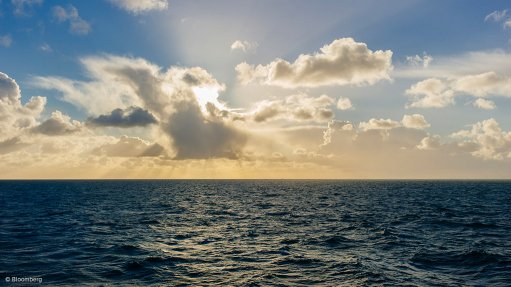
Photo by: Bloomberg
There is a significant need for a revolution in the plastics industrial ecosystem, as most plastic packaging is used only once, with 95% of the value of plastic packaging material lost to the economy after a short first use, a new report suggests.
The report, titled ‘The New Plastics Economy: Rethinking the Future of Plastics’, noted that plastic packaging material valued at between $80-billion and $120-billion was lost each year and warned that, aside from the financial cost, the current rate of production, use and disposal of plastics would, by 2050, result in the world’s oceans containing more plastic than fish by weight.
Released by the World Economic Forum in conjunction with the Ellen MacArthur Foundation and knowledge partner McKinsey & Company, the report outlined steps towards achieving the systemic shift needed to ensure that plastic does not become waste.
The ‘new plastics economy’ outlined in the report envisaged a fundamental rethink for plastic packaging and plastics in general – a new model based on creating effective after-use pathways for plastics; drastically reducing leakage of plastics into natural systems, in particular oceans; and finding alternatives to crude oil and natural gas as the raw materials in plastic production.
“This report . . . is the first step to showing how to transform the way plastics move through our economy. To move from insight to large-scale action, it is clear that no one actor can work on this alone. The public and private sectors, as well as civil society all need to mobilise to capture the opportunity of the new circular plastics economy,” said WEF public–private partnership head Dominic Waughray.
The report further found that the use of plastics had increased twentyfold in the past half-century and was expected to double again in the next 20 years.
“Linear models of production and consumption are increasingly challenged by the context within which they operate – and this is particularly true for high-volume, low-value materials such as plastic packaging.
“By demonstrating how circular economy principles can be applied to global plastic flows, this report provides a model for achieving the systemic shift our economy needs to make in order to work in the long term,” said Ellen MacArthur Foundation’s Dame Ellen MacArthur.
Achieving the systemic change needed to shift the global plastic value-chain would require major collaboration efforts between all stakeholders across the global plastics value-chain – consumer-goods companies, plastic packaging producers and plastics manufacturers, businesses involved the in collection, sorting and reprocessing of plastic, cities, policymakers and nongovernmental organisations.
The report proposed the creation of an independent coordinating vehicle to set direction, establish common standards and systems, overcome fragmentation and foster innovation opportunities at scale.
In line with the report’s recommendations, the Ellen MacArthur Foundation would establish an initiative to act as a cross-value-chain global dialogue mechanism and drive the shift towards a new plastics economy.
“Plastics are the workhorse material of the modern economy – with unbeaten properties. However, they are also the ultimate single-use material. Growing volumes of end-of-use plastics are generating costs and destroying value to the industry.
“After-use plastics could – with circular economy thinking – be turned into valuable feedstock. Our research confirms that applying those circular principles could spark a wave of innovation with benefits for the entire supply chain,” McKinsey Center for Business and Environment’s Martin Stuchtey highlighted.